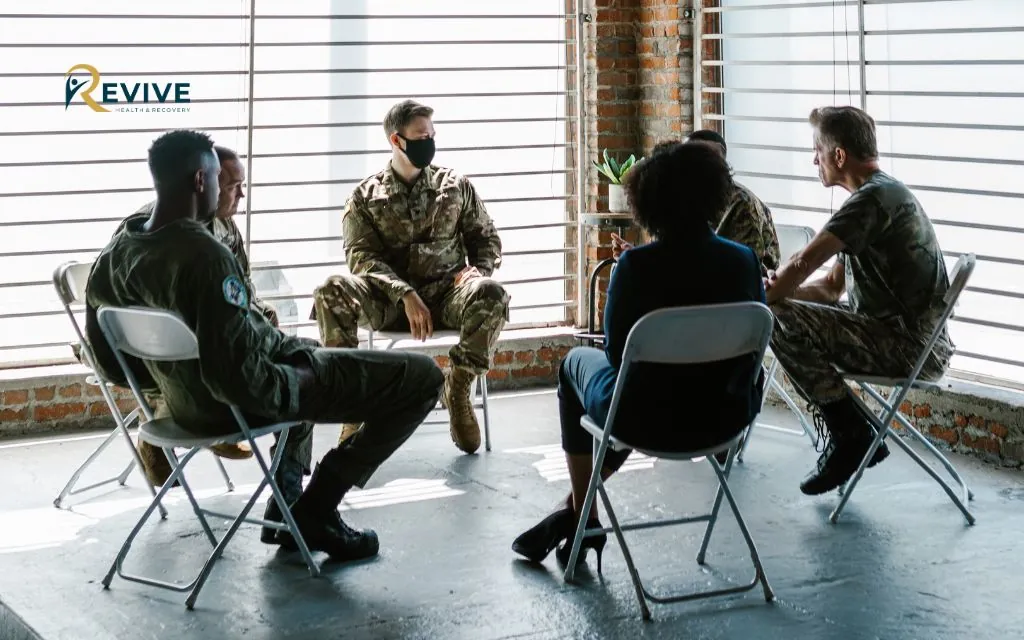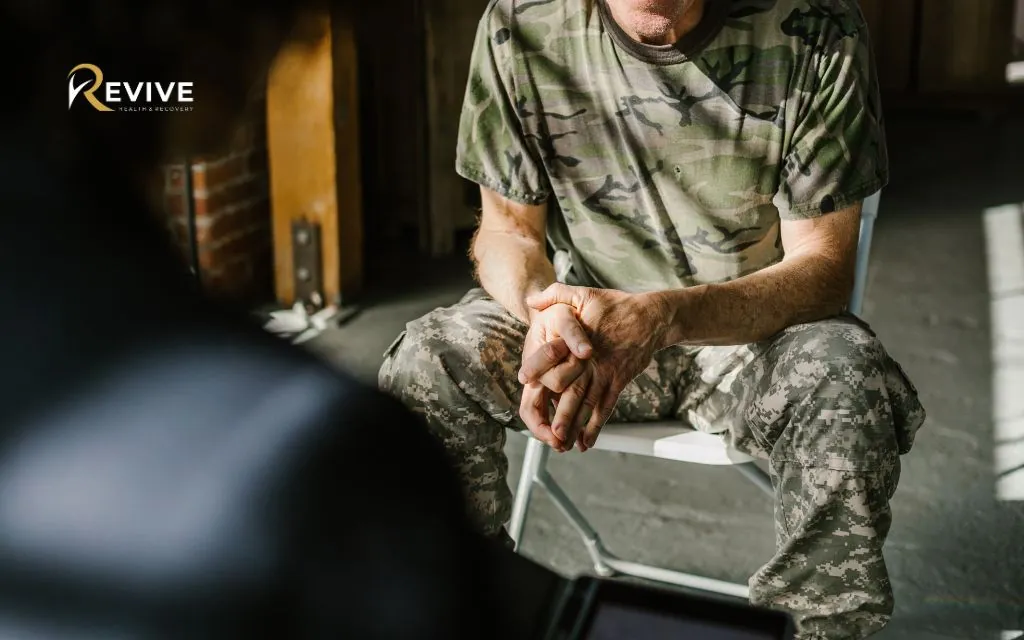Living with trauma isn’t easy – and for many, the weight of Post-Traumatic Stress Disorder (PTSD) can feel overwhelming. Flashbacks, anxiety, and emotional numbness can disrupt every part of life, from relationships to work. But healing is possible. If you’re coping with Post-Traumatic Stress Disorder and searching for help, finding the right PTSD therapist Denver could be your turning point. This guide will walk you through what PTSD is, effective treatment options, and how to choose a therapist who truly understands your journey. Whether you’re a veteran, survivor, or first responder, Denver offers specialized care that can help you reclaim your life—starting today.
What Is PTSD? A Clear Starting Point
Defining PTSD
Post-Traumatic Stress Disorder (PTSD) is a mental health condition triggered by experiencing or witnessing traumatic events. According to the American Psychological Association, PTSD develops when your natural stress response to danger becomes disrupted, leaving you stuck in a state of heightened alertness even when the danger has passed.
PTSD impacts daily functioning across multiple areas. Many people struggle with maintaining relationships, experience difficulties at work, and find everyday activities challenging. Simple tasks like grocery shopping or attending social gatherings can trigger overwhelming anxiety, leading to avoidance behaviors that further isolate those suffering.

Ptsd Therapist Near Me: What Is Ptsd And How Does It Affect
Common and Rare Symptoms
The National Center for PTSD identifies several key symptoms that can manifest in different ways:
- Intrusive memories, including flashbacks where you feel like you’re reliving the trauma
- Recurring nightmares about the traumatic event
- Hypervigilance, constantly scanning for threats
- Emotional numbness or feeling detached from others
- Strong physical reactions to reminders of the trauma
Less recognized symptoms include delayed onset PTSD, which may emerge months or years after the trauma, and physical manifestations like chronic pain, digestive issues, and immune system problems. Many trauma survivors also experience comorbid conditions including depression, anxiety disorders, and substance use problems as they attempt to manage their symptoms.
Causes of PTSD
PTSD can develop after any traumatic experience, including:
- Military combat exposure
- Physical or sexual assault
- Serious accidents or natural disasters
- Childhood abuse or neglect
- Medical trauma
For more detailed information on trauma types and their effects, the National Institute of Mental Health provides comprehensive research-based resources.
Different populations may face unique triggers. Veterans often struggle with combat-related trauma and moral injury. First responders repeatedly witness traumatic events during their work. BIPOC community members may experience trauma compounded by systemic racism, while LGBTQ+ individuals might face trauma related to discrimination and hate crimes.
Understanding your specific trauma context is essential for effective therapy for trauma survivors.
Top Treatments for PTSD: What Works
Evidence-Based Therapies
Research supports several effective approaches for PTSD treatment:
Cognitive Processing Therapy (CPT) helps you identify and change unhelpful thoughts about your trauma. This structured therapy examines how the traumatic event has affected your beliefs about yourself, others, and the world. Through written exercises and discussions, you learn to challenge distorted thinking and develop more balanced perspectives.
Prolonged Exposure (PE) gradually introduces you to trauma-related memories, feelings, and situations you’ve been avoiding. With your therapist’s guidance, you safely confront these triggers, reducing their power over time. Studies show that most people experience significant improvement after 8-15 sessions.
Eye Movement Desensitization and Reprocessing (EMDR) therapy is a unique approach that combines exposure therapy with guided eye movements or other bilateral stimulation. This helps your brain process traumatic memories in a new way, reducing their emotional intensity. EMDR therapy for PTSD in Denver has shown remarkable success rates comparable to other evidence-based approaches but often in fewer sessions.
Other effective options include Trauma-Focused Cognitive Behavioral Therapy (TF-CBT) and group therapy with fellow survivors who understand your experiences.
Medication Support
Medication can be an important component of PTSD treatment. Selective serotonin reuptake inhibitors (SSRIs) like sertraline and paroxetine are FDA-approved for PTSD and help regulate mood and anxiety. Other medications may address specific symptoms like sleep disturbances or nightmares.
Many mental health professionals recommend combining medication with therapy for optimal results. A comprehensive approach addresses both the biological and psychological aspects of trauma, offering better outcomes than either treatment alone.
Holistic Options
Complementary approaches can enhance traditional PTSD therapy:
Art therapy allows expression of traumatic experiences without words, helping process emotions that may be difficult to verbalize. Music therapy uses rhythm and sound to regulate the nervous system and reconnect with positive emotions. Animal-assisted therapy has shown particular promise for PTSD, as interactions with trained therapy animals can reduce anxiety and increase feelings of safety.
Trauma-informed yoga and mindfulness practices help reconnect with your body in a safe way, teaching skills to manage triggering sensations and build resilience against stress. Many PTSD therapists in Denver incorporate these holistic elements into treatment plans, often integrated into their online trauma therapy programs.

Finding the Best PTSD Therapist in Denver
How to Choose Your Therapist
Finding the right therapist is crucial for successful treatment. Look for these credentials:
- Licensed Professional Counselor (LPC)
- Licensed Clinical Social Worker (LCSW)
- Psychologist (PhD or PsyD)
- Additional certifications in trauma treatment
Essential qualities include trauma-informed care expertise, which recognizes how trauma affects the brain and body, and cultural competence to address cultural factors that influence trauma experiences.
When interviewing potential therapists, ask specific questions:
- “What is your experience treating my type of trauma?”
- “Which evidence-based trauma therapies do you use?”
- “How do you measure progress in therapy?”
- “What is your approach to building safety in the therapeutic relationship?”
Denver’s Top Therapists and Centers
Denver offers several excellent resources for PTSD treatment:
Revive Health Recovery provides comprehensive, personalized treatment for trauma and co-occurring disorders, including specialized PTSD treatment in Denver. Our team specializes in trauma-informed care with options for intensive outpatient programs and telehealth services. We work with you to develop a recovery plan tailored to your unique needs and goals, incorporating family support throughout the treatment process.
Denver Vet Center offers specialized trauma counseling for veterans and active service members, with therapists experienced in military-related PTSD.
Help for Heroes provides targeted programs for first responders experiencing trauma, with peer support and specialized treatment options.
Online vs. In-Person Therapy
Telehealth offers flexibility for those in rural areas or with busy schedules. Online PTSD therapy in Colorado provides access to treatment without commuting, which can be especially beneficial for those with severe avoidance symptoms or transportation challenges.
However, in-person therapy may offer advantages for certain trauma treatments that benefit from face-to-face interaction. Many Denver providers now offer hybrid approaches, combining the convenience of telehealth with periodic in-person sessions.
If you’re considering telehealth, look for therapists specifically trained in delivering trauma treatment virtually. At Revive Health Recovery, our telehealth PTSD treatment follows the same evidence-based protocols as our in-person services.

What Happens in PTSD Therapy?
First Steps
Starting therapy can feel intimidating, but knowing what to expect helps. Your first few sessions typically focus on assessment, where your therapist gathers information about your trauma history, symptoms, and treatment goals. This may involve questionnaires, interviews, and discussion of what you hope to achieve.
Building a trusting relationship with your therapist is fundamental to successful trauma work. Good therapists understand the importance of moving at your pace and will never push you to discuss traumatic details before you’re ready. The initial phase emphasizes creating safety and developing coping skills before addressing trauma directly.
The Therapy Journey
As treatment progresses, you’ll typically meet with your therapist weekly or bi-weekly. Sessions may include various exercises such as:
- Journaling about thoughts and feelings
- Practicing relaxation and grounding techniques
- Gradual exposure to trauma triggers in a controlled environment
- Learning to identify and challenge negative thought patterns
Your therapist will regularly assess your progress, adjusting the treatment plan as needed, potentially incorporating intensive outpatient programs for PTSD for enhanced support. PTSD therapy isn’t linear—some weeks may feel more challenging than others, but overall, you should notice improvements in your symptoms and quality of life.
Coping with PTSD: Tools for Everyday Life
Self-Care That Works
Between therapy sessions, these strategies can help manage PTSD symptoms:
Grounding techniques bring you back to the present when experiencing flashbacks or dissociation. Try the 5-4-3-2-1 method: identify 5 things you can see, 4 things you can touch, 3 things you can hear, 2 things you can smell, and 1 thing you can taste.
Mindfulness practices help regulate your nervous system. Even 5-10 minutes daily of mindful breathing or meditation can reduce hyperarousal symptoms over time.
Healthy routines provide structure and stability. Prioritize regular sleep, balanced nutrition, and moderate exercise—all essential for managing trauma symptoms and supporting your body’s natural healing processes.
Local Support in Denver
Denver offers numerous resources for PTSD support beyond individual therapy, including trauma recovery programs for first responders to address their unique needs:
- The Phoenix Heart Center hosts weekly trauma support groups
- Colorado Crisis Services provides 24/7 support at 1-844-493-8255
- Denver Mental Health Collective offers free community workshops on trauma recovery
Support groups complement professional treatment by connecting you with others who understand your experiences firsthand, reducing isolation and normalizing your reactions to trauma.
For nationwide support, the SAMHSA National Helpline is available 24/7 at 1-800-662-4357.
Pitfalls to Avoid
While recovering from PTSD, be mindful of common challenges:
Isolation often feels safer but ultimately worsens symptoms. Even when difficult, maintain connections with supportive friends and family.
Self-medication with alcohol or substances provides temporary relief but interferes with healing and can create additional problems.
Trauma overload can occur when you’re exposed to too many trauma triggers at once, through news, social media, or conversations. Set boundaries around media consumption and practice self-compassion when you need to step back.

Stories of Hope from Denver
Real Recovery Journeys
Michael, a veteran who served in Afghanistan, struggled with PTSD for years after returning home. “I couldn’t sleep. I was constantly on edge. My marriage was falling apart,” he shares. After connecting with a PTSD therapist specializing in veteran care at Revive Health Recovery, Michael began EMDR therapy. “It wasn’t easy, but after six months, I started feeling like myself again. Now I can go to my kids’ baseball games without scanning for threats the whole time.”
Sarah survived domestic violence that left her with debilitating PTSD symptoms. “I jumped at every sound. I couldn’t trust anyone,” she recalls. Working with a trauma-informed therapist in Denver, she gradually reclaimed her sense of safety. “Through therapy, I learned that what happened wasn’t my fault. I found my voice again. Now I volunteer helping other survivors because I want them to know healing is possible.”
These stories highlight the resilience of trauma survivors and the possibility of recovery with proper support and treatment, including PTSD treatment in Boulder for those in nearby areas.
FAQs about PTSD Therapists Denver
What’s the best treatment for PTSD?
The most effective treatments are evidence-based approaches including CPT, PE, and EMDR. Revive Health Recovery offers all these therapies, tailored to your specific needs and trauma history.
How do I find a PTSD therapist in Denver?
Start by contacting Revive Health Recovery at (303) 268-4655. Our intake specialists will match you with a therapist specializing in your specific type of trauma. We offer comprehensive assessments and personalized treatment recommendations.
Does insurance cover therapy in Colorado?
Yes, most insurance plans in Colorado cover mental health treatment, including PTSD therapy, thanks to parity laws. Revive Health Recovery works with many major insurance providers and can verify your benefits before starting treatment.
What’s EMDR, and does it work?
EMDR is a specialized therapy that helps your brain process traumatic memories using bilateral stimulation. Research shows it’s highly effective for PTSD, often providing relief in fewer sessions than other approaches. Revive Health Recovery has certified EMDR therapists on staff.
Are there PTSD support groups in Denver?
Yes, Denver has several PTSD support groups for different populations. Revive Health Recovery offers specialized groups as part of our comprehensive treatment approach, providing both peer support and professional guidance.
Take the First Step Today
Healing from trauma is possible. Many people who once felt trapped by their PTSD now lead fulfilling lives with meaningful relationships and renewed purpose. Recovery doesn’t mean forgetting what happened, it means the trauma no longer controls your life.
The journey begins with reaching out. Contact Revive Health Recovery at (303) 268-4655 for compassionate, expert PTSD care in Denver. Our team understands trauma and knows how to help. You don’t have to face this alone! Call us today to schedule a confidential consultation with a PTSD therapist near me in Denver.



